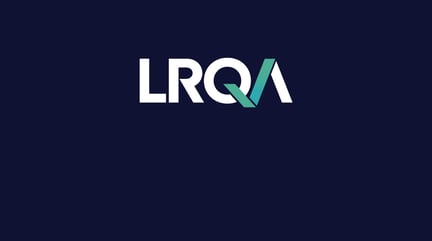Introduction
This course aims to provide delegates with the knowledge and skills required to lead audits and audit teams, both in their own organisations and in others (such as suppliers), and to audit food safety management systems against the requirements in ISO 22000:2018, and their own management system criteria.
What will you learn?
- the underpinning principles and benefits of a FSMS in an organisation’s success
- the principles, processes and techniques used for the assessment and management of food safety hazards
- the importance of aligning food safety specific controls with other general management system controls
- how continual improvement is applied within a FSMS
- the contribution audits make to the effectiveness of a management system
- the roles and responsibilities of a FSMS auditor and lead auditor
- about processes, and how to use them to audit the effective implementation of the FSMS
- to prepare thoroughly for audit and the value of process-based checklists
- to gather objective evidence through observation, interviewing and reviewing documentation
- how to relate your audit findings to the policy and objectives of the organisation being audited, including applicable regulations and legislation
- to report your findings accurately against the requirements of ISO 22000
- the certification requirements to become a registered auditor/lead auditor with CQI IRCA
What do you need to prepare?
Before starting this course, learners are encouraged to take an introductory course to Food Safety Management Systems and ISO 22000. For a successful completion, we recommend the following previous knowledge:
- ISO 22000 (ideally gained from attending LRQA’s 1-day Introduction to Food Safety Management Systems based on ISO 22000:2018 and FSSC 22000 versions 5, 5.1 or 6 course)
- experience of working in the food supply chain
- knowledge of the following Food Safety management principles and concepts:
- implementing or operating a management system within a food sector context. This includes private schemes such as BRC, GLOBALGAP, FSSC 22000 and/or other schemes which include management system components.
- relevant key food safety legislation (this may be specific to delegates’ food industry context and location).
- knowledge of prerequisite programmes as specified in e.g. Codex or ISO/TS 22002-1.
- Good Practice guides for Agriculture (GAP), Veterinary (GVP), Manufacturing (GMP), Hygiene (GHP), Production (GPP), Distribution (GDP) and/or Trading (GTP) depending on the segment of the food chain in which the student operates.
- the principles of HACCP as defined by the Codex Alimentarius Commission.
to understand the basics of how organisations work and the role of top management.
- to understand the basics of how organisations work and the role of top management.
Course content
Personal course preparation activities
- Pre-coursework: 4 eLearning modules with quizzes and reference materials.
Group course program items
- Review pre-work course
- ISO 22000 and operational + organizational planning and control
- Spider diagram and application
- Document review on context analysis with case study materials
- Auditing basics
- Document review on HACCP with case study materials
- Audit cycle, programme and plan
- Meetings, scopes and planning
- Stage 2 planning application
- Correction and corrective action
- Process model application
- NC reporting application
- Auditor skills and behaviour
- LRQA 6-stage interview model and feedback
- Top management interview
- Validation, monitoring and verification structure
- Preparation of interviews
- Stage 2 interviews
- Actual reporting
- Actual closing meeting
- Exam information and empowerment
Participants are expected to do homework every day.
Online Exam
The participant needs to do the online examination within 180 days after the course.
Note: Only participants who achieve a successfully continual assessment can do the exam.
Course certification
Learners who attend the full duration of the course will be issued with a “Certificate of Attendance”.
Learners who successfully complete the training and successfully pass the final examination and continual assessment will be issued with a “Certificate of Completion”.
This course is certified by CQI and IRCA and meets the requirements of the CQI and IRCA ISO 22000:2018 Lead Auditor (FSMS) course criteria PR359.
Course length
- Pre-course work with eLearning: 8 – 24 hours.
- We have two modalities available for this course:
- Classroom training: five days – 9.00 to 17.00 hours
- Virtual Instructor-Led Training (VILT): five days– 9.00 to 15.45 hours
- Online exam within 180 days after the course.
Why choose LRQA
With LRQA, you can access a wide range of courses to help you further your career and bring improvements to the management systems in your organisation. With many learning styles to choose from, our training courses can help you develop and reach your next level. Find out more about Ascend Training Courses from LRQA.



